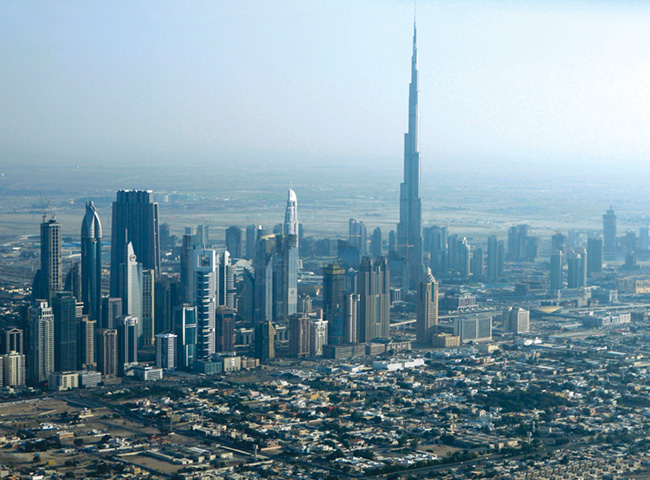
Dubai in UAE City Guide
The second largest emirate of the federation, Dubai has the highest population and international profile. With lower reserves of oil and a reputation as a trading post, Dubai concentrated on its strategic position early on, developing itself as a commercial hub. Since the establishment of Jebel Ali Port (1979) and Jebel Ali Free Zone (1985), a number of business specific free zones have been developed and are continuing to grow and encouraging foreign investment.
Aviation has played a strong role in the emirate’s success, with the government’s 'open skies’ policy helping to establish the city as a regional hub for both passenger and cargo traffic. Constant development has seen the airport expand to three terminals and capacity is expected to increase from 60 million passengers to 90 million by 2018. A second mainly charter and cargo airport, Al Maktoum International, has opened in Jebel Ali as part of Dubai World Central. Dubai’s own Emirates Airline, launched in 1985, has been a major player in this development and continues to expand rapidly in terms of fleet and international destinations.
Under the guidance of the ruler His Highness Sheikh Mohammed bin Rashid Al Maktoum, Dubai has also positioned itself as the financial hub of the region. Dubai International Financial Centre was designed to provide a business-friendly home to financial institutions and boasts independent regulation, common law framework, supportive infrastructure and a tax-friendly regime which allows 100% foreign ownership. This unique framework, along with the stability of the emirate and the country, has seen the financial community grow rapidly.
Dubai has earned worldwide renown for its tourism industry, with the first 7-star hotel in the Burj Al Arab, an indoor ski run, water parks and a number of record-breaking architectural features, including the Burj Khalifa, the tallest tower in the world. There has been government and private sector investment into the rapid rise of the hotels, shopping malls and attractions that bring tourists rushing to the emirate.
Sports have long been important in Dubai, with the Dubai Duty Free Tennis Championships and the Dubai World Cup, the world’s richest horserace, are well established on the calendar. However, recent developments have seen an increasing number of international cricket matches, swimming championships and motorsport events hosted in specially-built venues.
The city has a well-developed communication and transport infrastructures, with the Dubai Metro, the first urban train system in the Middle East, recently joining a well-established public transport system that includes water buses, buses and taxis.






